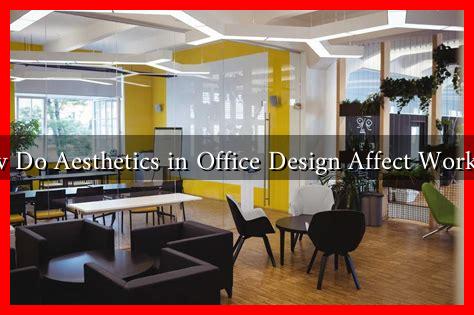-
Table of Contents
How Do Aesthetics in Office Design Affect Workers?
In today’s fast-paced corporate environment, the aesthetics of office design have become a crucial factor in enhancing employee productivity, satisfaction, and overall well-being. The visual and sensory elements of a workspace can significantly influence how employees feel and perform. This article explores the various ways in which aesthetics in office design affect workers, supported by research, case studies, and practical examples.
The Importance of Aesthetics in the Workplace
Aesthetics in office design encompass various elements, including color schemes, furniture styles, lighting, and spatial arrangements. These factors contribute to the overall atmosphere of the workplace, which can have profound effects on employee morale and productivity. Here are some key reasons why aesthetics matter:
- First Impressions: A well-designed office creates a positive first impression for clients and visitors, reflecting the company’s values and professionalism.
- Employee Well-Being: Aesthetic elements can enhance comfort and reduce stress, leading to improved mental health and job satisfaction.
- Brand Identity: The design of an office can reinforce a company’s brand identity, making it more recognizable and appealing.
Impact of Color on Productivity
Color psychology plays a significant role in office design. Different colors can evoke various emotions and behaviors, influencing how employees feel and work. For instance:
- Blue: Often associated with calmness and focus, blue can enhance concentration and productivity.
- Green: Linked to nature, green can reduce anxiety and promote a sense of balance and tranquility.
- Yellow: This color is known to stimulate creativity and energy, making it ideal for brainstorming areas.
A study conducted by the University of Texas found that employees working in environments with blue hues were 15% more productive than those in red or white spaces. This highlights the importance of thoughtful color selection in office design.
Natural Light and Its Benefits
Natural light is another critical aesthetic element that can significantly impact workers. Research shows that exposure to natural light can lead to numerous benefits:
- Improved Mood: Natural light helps regulate circadian rhythms, leading to better sleep and mood.
- Increased Productivity: A study by the Heschong Mahone Group found that employees with access to natural light were 15% more productive than those without.
- Reduced Eye Strain: Natural light reduces the need for artificial lighting, which can cause eye strain and fatigue.
Companies like Google and Facebook have incorporated large windows and open spaces in their office designs to maximize natural light, resulting in happier and more productive employees.
Biophilic Design: Bringing Nature Indoors
Biophilic design is an approach that seeks to connect people with nature through the built environment. This design philosophy has gained traction in recent years, as studies have shown its positive effects on employee well-being:
- Enhanced Creativity: Incorporating natural elements like plants and water features can stimulate creativity and innovation.
- Reduced Stress: Exposure to nature has been linked to lower stress levels and improved mental health.
- Increased Collaboration: Open spaces with natural elements encourage social interaction and teamwork.
For example, the Amazon Spheres in Seattle are a prime example of biophilic design, featuring a lush indoor garden that promotes employee well-being and creativity.
Case Studies: Companies Leading the Way
Several companies have successfully implemented aesthetic principles in their office designs, leading to improved employee satisfaction and productivity:
- Airbnb: Their San Francisco office features a variety of workspaces, including quiet areas, collaborative spaces, and vibrant colors, fostering creativity and collaboration.
- WeWork: Known for its stylish and flexible workspaces, WeWork emphasizes aesthetics to create an inviting atmosphere that encourages networking and productivity.
Conclusion
The aesthetics of office design play a vital role in shaping the work experience for employees. From color choices to natural light and biophilic elements, thoughtful design can enhance productivity, creativity, and overall well-being. As companies continue to recognize the importance of a well-designed workspace, investing in aesthetics will not only benefit employees but also contribute to the organization’s success. By creating environments that inspire and motivate, businesses can foster a culture of innovation and collaboration, ultimately leading to greater achievements.
For more insights on office design and its impact on productivity, you can explore resources from the Harvard Business Review.

